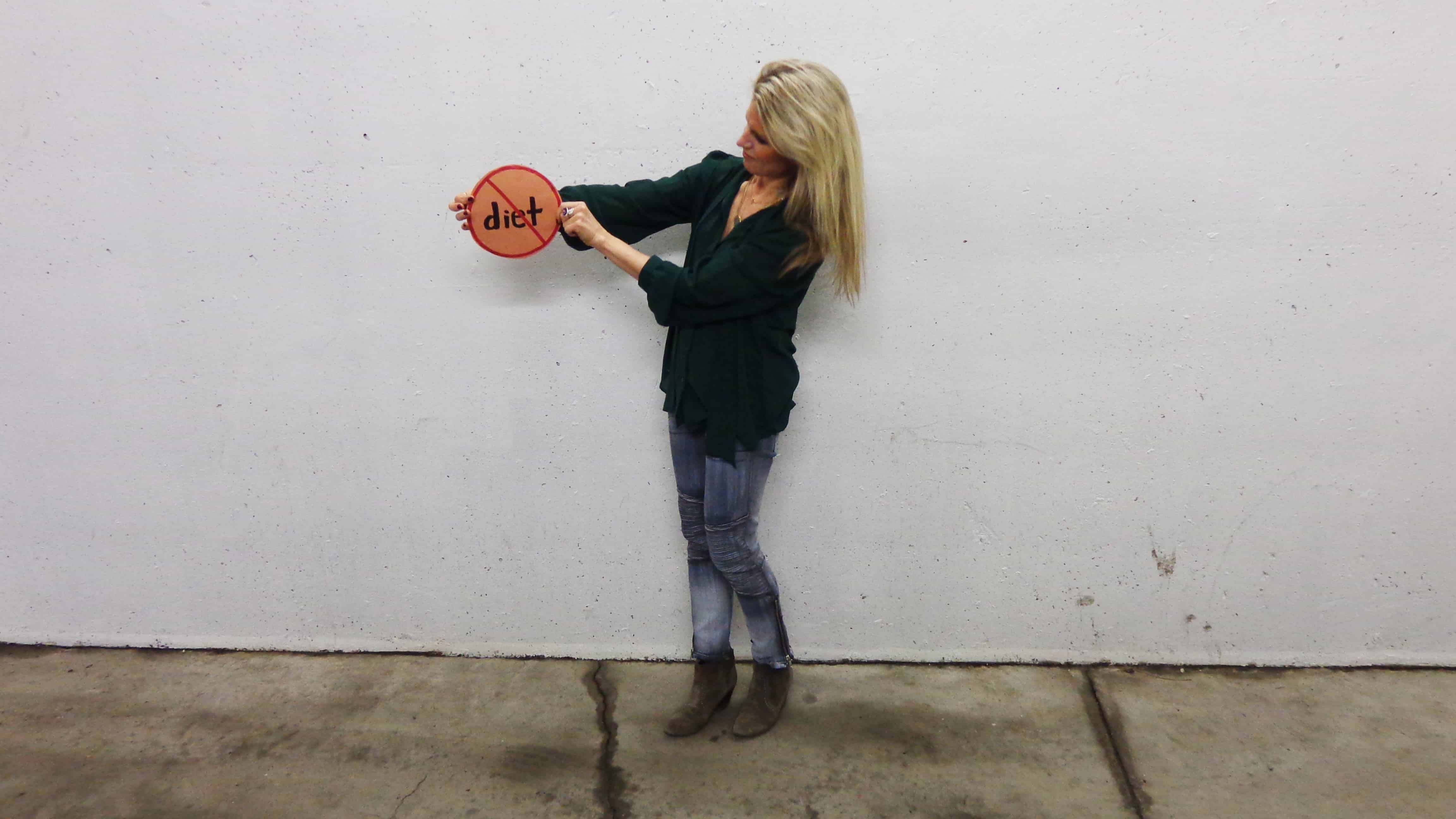This is National Eating Disorder Awareness Week. Here to share her experience with us is Kelly Clark of the10principles.com. Kelly battled with an eating disorder for years before finally discovering how to simplify her focus, reach and maintain a healthy weight, and stay true to her goals. Here is what she learned after nearly a decade of struggle.
When I first gained a few pounds the summer before high school, I panicked. I was desperate to get back to my “healthy” weight, so I dedicated myself to a weight-loss project by practicing any diet rule, tip or trick I came across.
I read I shouldn’t eat after 8 p.m. Fellow dieters advised me to get rid of the excess oil on pizza by blotting it with a napkin. A family friend, who’d been on a health retreat, warned me to steer clear of carrots because they’re high in sugar.
Trying to follow hundreds of these food restrictions made my eating disordered. Navigating social situations that involved eating was a nightmare. The harder I worked to lose weight, the more weight I gained. Shame led to secrecy, and I isolated myself with the wrong information.
Sadly, I’m not alone. Preoccupation with weight is an epidemic, and there are too many chronic dieters who have too much to give. Consider these statistics:
- 1 in 4 teen girls are trying to lose weight and spend between 20% and 100% of their waking hours thinking about food, weight and hunger
- $148 billion is the annual revenue of the global weight-loss industry
- 67% of women between the ages of 15 and 64 withdraw from activities, such as going to the doctor, giving an opinion or going to school because they feel bad about the way they look
Imagine if we added up all the hours, resources and unique potential of every person preoccupied with weight and put it toward something productive!
In a way I feel lucky my experience was extreme; it forced me to get to the bottom of what was going on and to realize I’m passionate about prevention. Dieting makes weight loss more complicated, and the lessons I learned can help anybody reach and maintain a healthy weight naturally. These were my three major turning points:
- Asking for help. I had a lot of trouble with this. I thought strong and silent went hand in hand. Now I know that’s BS. Being strong is about mobilizing a team of people who have solutions so you can get back to your own expertise. In other words, wandering around Canadian Tire trying to find the tackle aisle in a desperate-to-do-it-on-your-own haze is not cool. You’re losing precious time where you could be fishing.
- Understanding. I finally asked for help in my first year of university. By then I had five years of engrained bad habits. At the student health center I discovered I have OCD. My doctor asked me if I saw patterns in my life. When he pointed them out, I was shocked! It was a HUGE relief to find out what was going on. OCD was this big, missing piece of the puzzle. So many of my self-destructive choices, like being obsessed with following a diet perfectly (rather than actually losing weight) suddenly made sense. I also learned what healthy eating looked like. For instance, you don’t have to eat diet food. You can eat dessert. Educate yourself. Understanding is knowledge and knowledge is power.
- Remembering who you are. The whole point of eating is to live. But after I’d been struggling for a while, I started dropping out of all the school, sport and social activities I loved. I thought the extra space would help me get healthy. But in reality, it gave me more time to run in the wrong direction. My whole life became about trying to lose weight. But when you get busy with things that matter to you, eating (or any issue) becomes less of a focus. When I was a student teacher, there was no time to worry if I ate one bite too many. There were too many little people I loved who needed help. Staying busy in a meaningful way gave my day structure and forced me to be flexible. Having to continue on after a choice I regretted helped me realize there’s no exactness to eating (like rigid diets suggest).
I was bulimic for a decade, and the lessons I learned are universal. Whether you are trying to lose a few pounds, overcoming an eating disorder, getting out of a difficult relationship or learning a new skill (like fishing), don’t forget who you are. Understand what you’re doing. Ask for help. And keep asking until you get the help you need. You can get through challenging experiences and come out better because of them. Good or bad, nothing lasts forever.
Years ago I heard Bono on TV say something along the lines of, “We want your minds, not your money.” After years of being stuck in a moment that you can’t get out of…I thought that was perfectly put.
My eating disorder was an education. After years of regret, I’m at a point that if you gave me a button to push that would take my eating disorder out of my life, I wouldn’t push it. Too many good things have come from those difficult years. Thanks to National Eating Disorder Awareness Week, there’s a spotlight on being open to learn and share.
Kelly Clark blogs about how to simplify reaching and maintaining a healthy weight so you can focus on your real goals at the10principles.com.



 Follow Us On Instagram
Follow Us On Instagram
